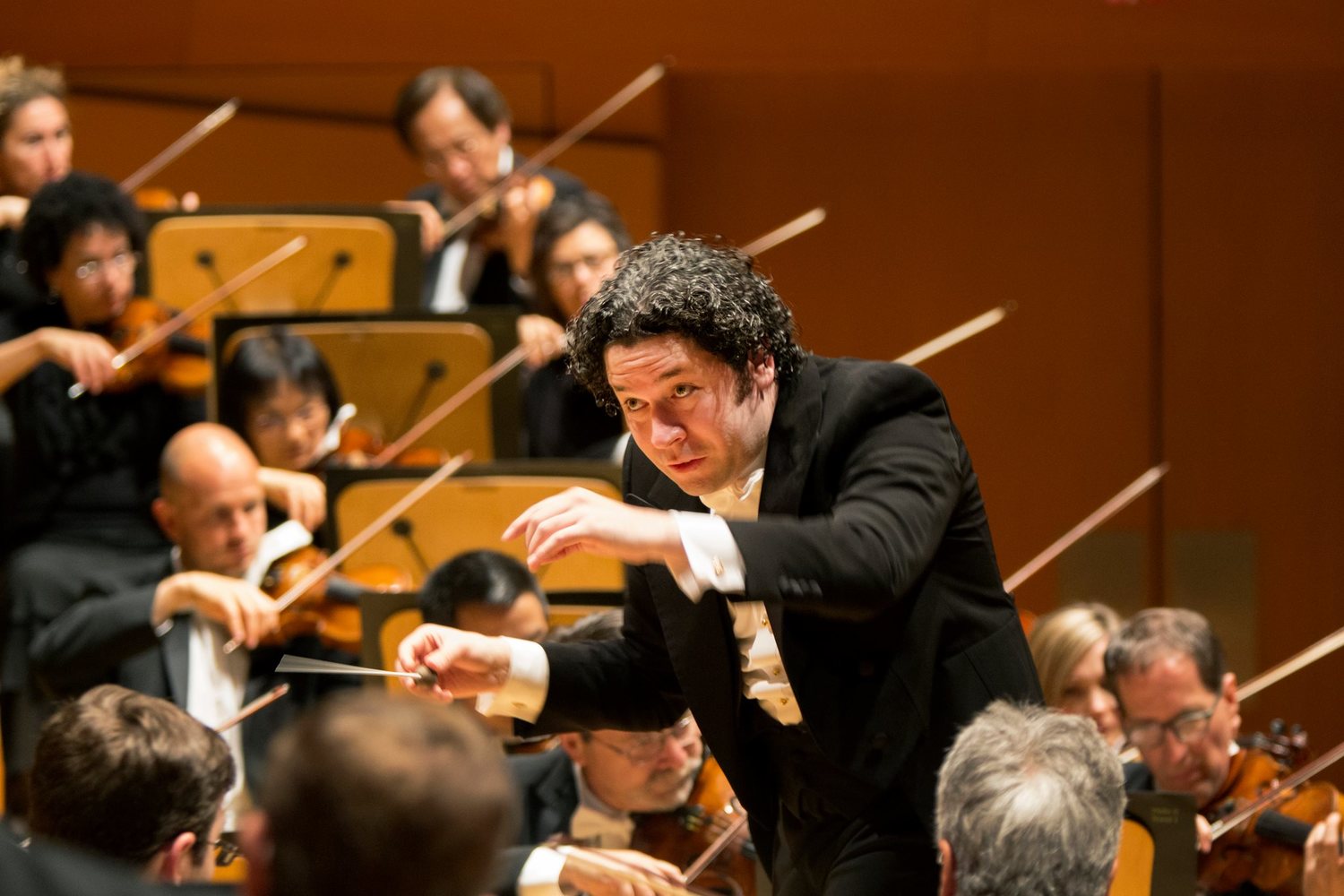Review: The Los Angeles Philharmonic at Disney Hall
 On Sunday, April 22, 2018, the Los Angeles Philharmonic Orchestra gave a matinee performance of Leonard Bernstein's Chichester Psalms together with Ludwig van Beethoven's Symphony No. 9 in D Minor.
On Sunday, April 22, 2018, the Los Angeles Philharmonic Orchestra gave a matinee performance of Leonard Bernstein's Chichester Psalms together with Ludwig van Beethoven's Symphony No. 9 in D Minor.
The origin of Bernstein's CHICHESTER PSALMS dates back to a letter he received from the Very Reverend Walter Hussey in late 1963. Hussey, the dean of Chichester Cathedral in Sussex, England, wanted a new piece for a festival to be held in the summer of 1965. Writing Bernstein later, he suggested PSALM 2, or some part of it, accompanied by orchestra, organ, or both. Bernstein did not write for the organ but he did use Psalm 2 along with otherwise unperformed music from WEST SIDE STORY and from the never completed musical THE SKIN OF OUR TEETH.
Sung in Hebrew, each movement of the CHICHESTER PSALMS includes one complete psalm and pieces of another psalm. In the first movement, we heard all of Psalm 100 and selections from number 108 as the music invited believers to praise God. The percussion-led second movement featured countertenor John Holiday intoning the beauteous phrases of the 23rd Psalm. The composer intertwined the singer's music with the war-like verses of Psalm 2. Although seated at the back of the orchestra, Holiday's lyric voice carried well and its sound was as luscious as aged sherry wine in Disney Hall's excellent acoustics. After the thoughts of war brought on by brass and percussion, conductor Gustavo Dudamel used the final movement to restore the peaceful atmosphere of Psalm 131 mixed with excerpts from Psalm 133.
After a short intermission, the Phil played the piece most of the audience had come to hear: BEETHOVEN'S NINTH SYMPHONY. Conducting from memory, Dudamel seemed to relate orchestral tones to the sounds of nature. The opening horn call was soft, as though heard from a distance. From this tiny thread of sound, Dudamel gradually brought up the level of concerted tone to forte. It was not the loudness that was exhilarating, but the excitement contained in each note that made the performance memorable. The maestro's approach to the second movement, the scherzo, was light and quick. It seemed as though sunbeams were dancing on his baton.
Listening to Beethoven is always meaningful because of the many ways in which this composer uses and reuses his musical material. He never repeats himself. He always has new ideas, and in the Ninth his imagination seemed unlimited, even though his hearing was almost completely gone. At the this symphony's premiere, the composer's friends had to point him in the direction of the applause because he could not hear any of it.
The vocal soloists entered the stage before the third movement and, like the countertenor before them, they sat behind many instrumentalists. The orchestra played the Adagio flexibly and with song-like tones as though it was an aria. Here, the audience could see and hear Dudamel's concept of this movement as an arch that culminates in the last movement, the ODE TO JOY.
Poet, historian, and dramatist Friedrich Schiller, author of seminal works such as DON CARLOS, THE MAID OF ORLEANS, and WILLIAM TELL, wrote the spiritually uplifting ODE in 1785 and published it the following year. Beethoven loved the idea of uniting all humanity into a peaceful group, but even the magic of his music has not brought it to fruition.
After a rousing drum roll, the commanding voice of bass-baritone Craig Colclough called upon humanity to unite in brotherly love. All four soloists had to have voices powerful enough to sing over a large orchestra and each had a distinct timbre that was easily distinguishable from the others.
Soprano Julianna di Giacomo had crystal clear high notes that carried through out the hall. Mezzo Jennifer Johnson Cano sang with creamy tones that seemed to envelope the orchestral sound. Tenor Michael König had a smoky sound that seemed to incorporate a baritonal quality. Together their voices formed a unique multicolored aural tapestry as they soared above and below the voices of Grant Gerson's Los Angeles Master Chorale.
Most of the same soloists will be going on tour with the Los Angeles Philharmonic Orchestra. The Phil will perform the Bernstein and Beethoven program in Washington D.C., New York City, and Paris. The weekend in LA was just a harbinger of performances to come.
Reader Reviews
Videos

